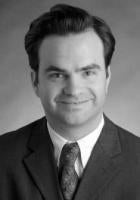Knapp v. AT&T Wireless Services, Inc. (Case No. G043744, May 20, 2011) __Cal.App.4th__, is the latest in a line of recent class action cases limiting the scope of In re Tobacco II Cases (2009) 46 Cal.4th 298. In Tobacco II, the California Supreme Court held that a named plaintiff in a putative class action must have suffered injury-in-fact to bring a claim for violation under the fraud prong of California's Unfair Competition Law (the "UCL"), but that the named plaintiff need not show actual injury to unnamed class members. The court in Knapp held that Tobacco II applies only to standing, and not commonality, which requires a separate analysis. For this reason, the Fourth Appellate District upheld the trial court's order denying plaintiff's motion for class certification, finding that because AT&T Wireless did not make uniform representations to proposed class members, common issues of law did not predominate over individual issues and a class should not be certified under the UCL.
Julia Knapp subscribed to AT&T Wireless' cell phone service. She claimed that AT&T Wireless fraudulently misrepresented and failed to disclose that it rounded up a customer's partial airtime minutes to full minutes when calculating customers' monthly minute totals. She claimed she suffered actual injury from this practice and, in a putative class action, sued for violations of the UCL and California's Consumers Legal Remedies Act (CLRA), as well as common-law fraud. She then moved to certify a class, in part on the basis that her claims were common among the proposed class.
AT&T Wireless opposed the motion, arguing that the alleged misrepresentations were not uniformly made to proposed class members -- some representations were oral with sales representatives either over the telephone or in person, while AT&T made many other relevant representations about the cell phone service in various advertisements, including radio, television, print and direct mailings.
Plaintiff argued that Tobacco II prohibited such individual inquiries. The Court of Appeal in Knapp, however, disagreed. "We see no language in Tobacco II that suggests to us that the Supreme Court intended our state's trial courts to dispatch with an examination of commonality when addressing a motion for class certification." The Knapp court found that Tobacco II was "irrelevant because the issue of 'standing' simply is not the same thing as the issue of 'commonality.'" For these reasons, the Court of Appeal affirmed the decision of the trial court finding a lack of commonality and denying the motion to certify the class.
This decision is the latest in a growing line of Court of Appeal decisions to circumscribe Tobacco II's apparent prohibition on inquiring into the standing of individual members of a putative class under the fraud prong of the UCL. Several courts have now drawn sharp distinctions between analyzing the standing of absent class members--rejected by the Tobacco II court--and analyzing the circumstances of absent class members cases for the purposes of analyzing common issues for class certification. Drawing on recent decisions in Cohen v. DIRECTV, Inc. (2009) 178 Cal.App.4th 966, Kaldenbach v. Mutual of Omaha Life Ins. Co. (2009) 178 Cal.App.4th 830, 843 and Pfizer v. Superior Court (2010) 182 Cal.App.4th 622, the Knapp court concluded that Tobacco II "does not affect our analysis as to commonality."




 />i
/>i
